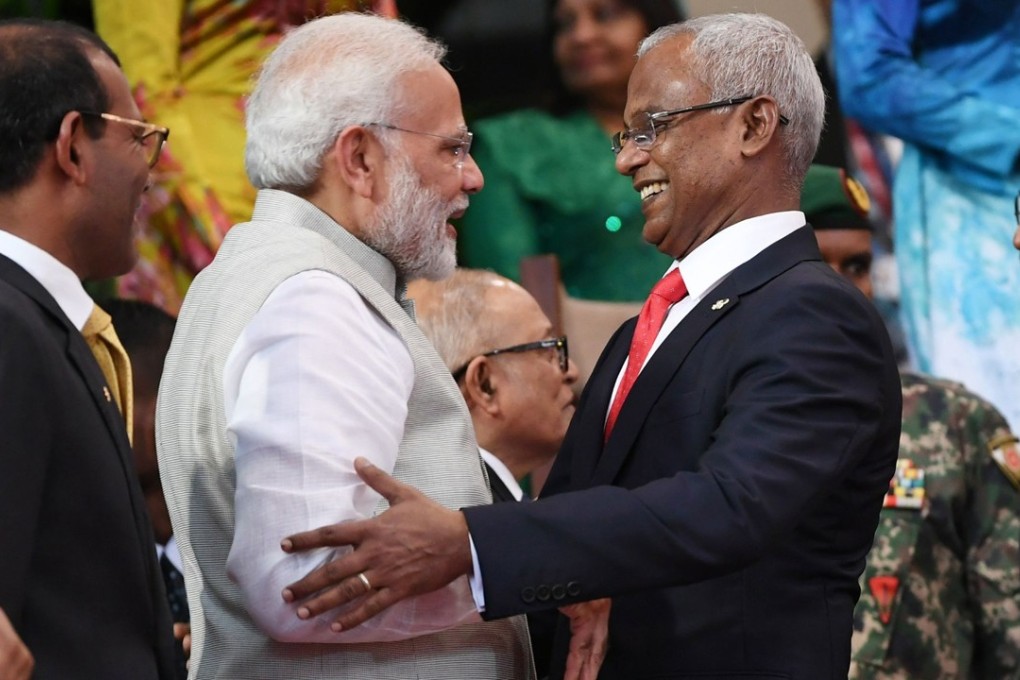In Maldives, India’s Modi sees the glint of a Chinese pearl
- The fall of Abdulla Yameen, the Maldivian strongman president seen as Beijing’s man in Male, gives India a chance to regain influence
- India’s prime minister made his first visit to the nation last weekend

Why the Maldives matters
The Maldives remains an important component of New Delhi’s plan to preserve its influence in the Indian Ocean. The Indian Navy oversees the waters between Qatar – the forward headquarters of the United States Central Command (Centcom) – and the Strait of Malacca, beyond which lies the hotly contested and militarised South China Sea. Each year, more than 100,000 ships carrying oil, minerals and manufactured goods travel the international shipping lanes running through the northern Indian Ocean. The Indian Navy has dominated these waters, thanks to two Indian archipelagos: the Lakshadweep Islands to the west and the Andaman and Nicobar Islands in the eastern Indian Ocean.
However, a Chinese base in the Maldives, not far from Lakshadweep, would enable a countervailing Chinese naval presence. New Delhi worries that Beijing – having obtained naval basing rights in Djibouti, in East Africa, while also building a port at Gwadar in Pakistan – is also flexing its financial and commercial muscle to create bases in Myanmar, Bangladesh, Sri Lanka and the Maldives. These bases would be China’s vaunted “string of pearls” – a potential maritime chokehold on India.
